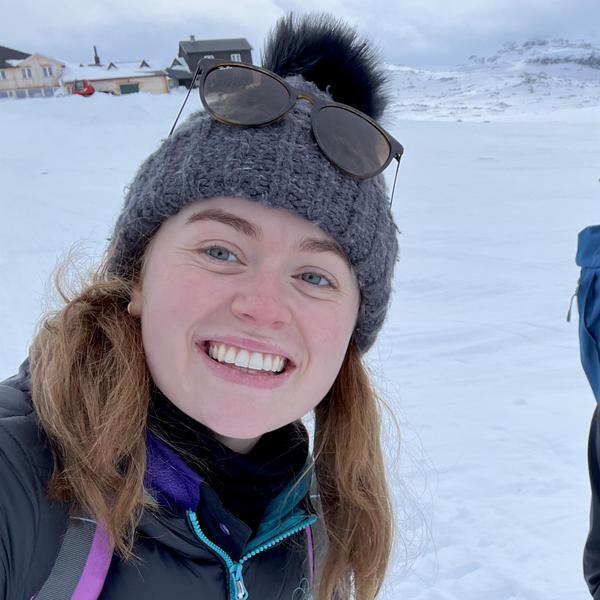Charlotte Curry
School of Geography and Planning
PhD Candidate


Full contact details
School of Geography and Planning
Geography and Planning Building
Winter Street
Sheffield
S3 7ND
- Profile
-
I am a glacial geomorphologist, interested in both long-term and short-term glacial change in mountain environments. I enjoy conducting fieldwork in a range of geographical settings ranging from the European Alps and the Andes.
I joined the Department of Geography in 2019 when I began studying for my MSc in Polar and Alpine Change. During this time my research was focused on investigating the causes of glacier velocity anomalies across the Karakoram, Spiti Lahaul and Eastern Himalayan regions of High Mountain Asia. Since then I have continued to study the evolution of mountain glaciers, however I have switched focus from glaciers in High Mountain Asia to those in the Andes.
Reconstructing Glacier Change Between 33°S and 35°S in the Chilean Andes since the Last Glacial Maximum
Anthropogenic activity is causing glaciers to change rapidly across the Andes. Firstly, as global temperatures rise, mountain glaciers are generally shrinking in response to warmer atmospheric conditions and reduced snowfall. Secondly, the extraction and use of natural resources drives increased atmospheric pollution through the production of dust and vehicle emissions, resulting in enhanced melting where glaciers are in close proximity to active mines (such as in the Olivares Basin, Chile). Despite the obvious importance of glaciers as drought-resistant water resources in this arid region, the impact of mining on glacier behaviour is poorly understood.
My project investigates the glaciers of the Central Chilean Andes on two spatio-temporal scales. To understand long-term glacier evolution, I combine geomorphological mapping with cosmogenic nuclide exposure-age dating to create a moraine geochronology, which is then used in conjunction with an ice flow model (iSOSIA) to simulate glacial change since the Last Glacial Maximum between 33°S and 35°S. On shorter time scales, I investigate the evolution of the Olivares Glaciers (33°S) since the late 20th century, to assess the impact of supraglacial mining dust deposition from the neighbouring copper mines. I use the HYSPLIT model to simulate the dispersion of mining dust across the Olivares Glaciers, and combine these with the iSOSIA glacier model to explore the feedbacks between dust deposition and glacier mass balance, to ultimately understand the impact of mining dust on glacier evolution.
The overarching aim of this work is to understand the impact of mining on glacier evolution, in the context of long-term glacier change in the Central Chilean Andes.
Supervisors: Dr Ann Rowan, Dr Stephen Livingstone, Dr Rob Bryant, Dr Duncan Quincey and Dr Claudio Bravo.
- Qualifications
-
2021 – Present: PhD, The University of Sheffield
2020 – 2021: Research Assistant, The University of Sheffield
2019 – 2020: MSc (Res) Polar and Alpine Change, The University of Sheffield
2016 – 2019: BSc Geography, The Queen’s University of Belfast
- Teaching activities
-
- GEO113: Earth, Wind, Ice and Fire
- GEO356: Dissertation
- GEO396: Costal systems, Processes and Management
- GEO21011: Understanding the Climate System
- GEO21012: Unlocking Past Environmental Changes
- GEO21013: GIS and Earth Observation
- GEO21019: Putting Physical Geography into Practice
- GEO31011: Our Frozen Planet
- Professional activities and memberships
-
Grants and Scholarships
- Hossein Farmy Scholarship: PhD fees and Stipend
- The Mount Everest Foundation: Fieldwork in Chile, £3,000.00
- The Royal Geographical Society with IBG: Fieldwork in Chile, £1,000.00
- The Natural Environment Research Council Field Spectroscopy Facility (NERC FSF): Equipment loan
- The Quaternary Research Association: INQUA Congress Travel Grant, £575.00
Conference Activities
- The European Geoscience Union (EGU): Vienna, 2020
- The Grantham Centre for Sustainability Symposium: Sheffield, 2021, 2022, 2023
- The Quaternary Research Association (QRA) Co-chair: Sheffield, 2022
- The International Mountain Conference (IMC): Innsbruck, 2022
- International Union for Quaternary Research (INQUA): Rome, 2023
- British Society for Geomorphology (BSG): Edinburgh, 2023
Awards
- The Geographical Club Award, awarded by The Royal Geographical Society in March 2023
- The Koerner Dissertation Prize, awarded by The University of Sheffield in November 2020
- The Estyn Evans Dissertation Award, awarded by The Queen’s University of Belfast in June 2019
Professional Memeberships
- Grantham Centre for Sustainable Futures Scholar: https://grantham.sheffield.ac.uk/scholars/charlotte-curry/
